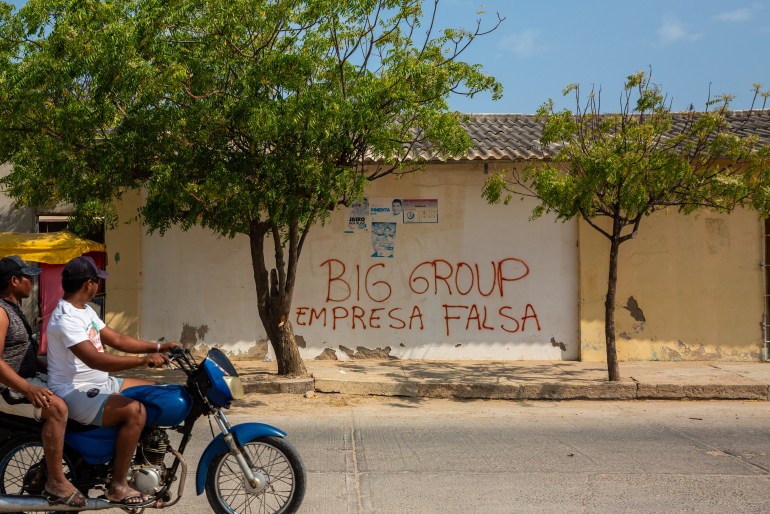Some critics point to mismanagement in the salt industry as part of the reason for La Guajira’s economic instability.
From 1941 to 2002, the national government was in charge of the salt mines, first through the Bank of the Republic and later through the Institute of Industrial Development (IFI).
But Indigenous communities chafed at the federal control. They asserted their rights to the territory and eventually struck an agreement with the government to create a new entity called the Maritime Salt Flats of Manaure (SAMA).
It was conceived as a public-private partnership. The municipal government of Manaure holds a 24-percent stake in the company, while three Indigenous associations — the Sumain Ichi, the Waya Wayuu and the Asocharma — manage the rest.
But in the two decades since it took control of the salt industry, SAMA has faced criticism for failing to generate a profit, even after handing its administration to a private operator, the Big Group.

According to a 2023 decision from the Constitutional Court, SAMA has a debt of more than $5m. In 2020, workers held a strike that lasted more than 600 days to demand unpaid wages.
Robinson Ramos, the president of the Sintrasales salt workers union, accused SAMA of not actively producing salt but instead relying on its reserves.
“We worry every day that the company will arrive at a point that cannot sustain itself,” Ramos said. “This would generate a great economic and social impact in our municipality.”
Miguel Epieyu, a Wayuu leader who is part of the Sumain Ichi association, also noted that the machinery used to process, clean and transport the salt has fallen into disrepair. The local pier, for instance, has collapsed.
He said the problems began when the government turned over the salt plants to SAMA. A significant portion of the existing machinery has not been updated since 2002.
“There was a transition process when no maintenance was done to existing infrastructure, including the washing plant and the pier,” Miguel explained.
“The right thing to do would be to hand over an active industry, not a bunch of junk, ruins and decaying infrastructure.”
EMEA Tribune is not involved in this news article, it is taken from our partners and or from the News Agencies. Copyright and Credit go to the News Agencies, email news@emeatribune.com Follow our WhatsApp verified Channel





